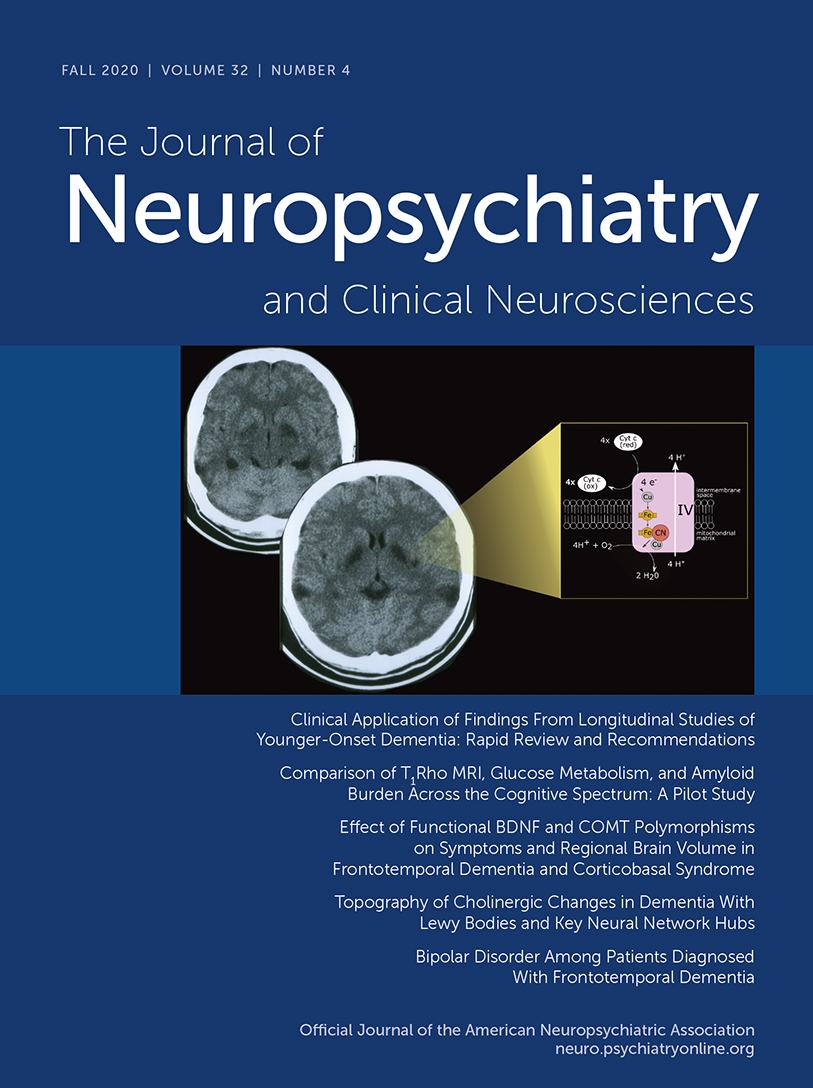Psychiatric Morbidity and Its Prognosis in Posterior Reversible Encephalopathy Syndrome
Abstract
Posterior reversible encephalopathy syndrome (PRES) is a clinically and radiologically diagnosed disorder distinguished by subcortical vasogenic cerebral edema. To date, its presentation has been described through summarized neurological categories, such as seizures, headaches, “confusion,” and “altered mental function.” This retrospective case series identified all cases of clinically confirmed, radiologically diagnosed PRES resulting in treatment in a large teaching hospital from 2010 to 2019. The authors conducted a search for the term “reversible encephalopathy” in the hospital clinical radiology information system, followed by an audit of scan reports and clinical records. The most common reasons for psychiatric referral were addictions, acute psychosis, depression, suicidality, and treatment refusal. Multidisciplinary staff should consider PRES as a rare, organic differential diagnosis for acute mental state changes. Physicians should be aware of elevated rates of post-PRES psychiatric symptoms and consider whether psychiatric consultation may enhance recovery.



